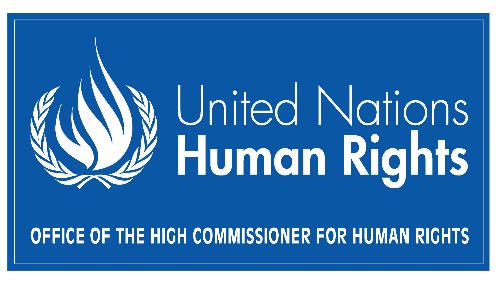Eritrea at 25 – Still in search of freedom? 25th Anniversary of the Independence of Eritrea – 24 May 2016
Eritrea at 25 – Still in search of freedom? 25th Anniversary of the Independence of Eritrea – 24 May 2016
GENEVA (23 May 2016) – Ahead of the celebration of the 25th Anniversary of the Independence of Eritrea on Tuesday 24 May, the United Nations expert Sheila B. Keetharuth, urges the Eritrean Government to implement the 1997 Constitution.
The UN Special Rapporteur on the situation of human rights in Eritrea also calls on all Eritreans to fully embrace democracy and the rule of law to achieve the vision established on 24 May 1991.
“The 25th Independence Anniversary celebration provides Eritreans with an opportunity to reflect on the aspirations and dreams of those who fought for independence.
The 1997 Constitution sets out the vision of what Eritrea wanted to be as a country and yet it remains unimplemented to date. As the country reaches 25 years, this constitutional vacuum provides room for arbitrariness in managing the affairs of the State and engaging with its citizens.
The independence of the country, that is, the national independence should match with individual independence and freedoms: freedom of conscience, thought, mind and expression; freedom to engage in employment and education of one’s own choice.
At 25, Eritrea needs to take decisive steps to embed democracy and the rule of law in the country. Such a move would advance respect for human rights, while further empowering the people and bridging the gaps between aspirations and reality. I call on the Government to do more to respect, protect and fulfil human rights and to establish the rule of law.
I salute the heroism and courage of all those women and men who struggled for their freedom and fought for their country’s independence. I also acknowledge the determination of those who are still engaged in preserving such hard-won freedom.”
Ms. Sheila B. Keetharuth was appointed as the Special Rapporteur on the human rights situation in Eritrea during the 21st Session of the UN Human Rights Council in September 2012. She took her functions on 1 November 2012. As Special Rapporteur, she is independent from any government or organization and serves in her individual capacity. A lawyer from Mauritius, she has extensive experience in monitoring and documenting human rights violations, advocacy, training and litigation in human rights in Africa. Learn more, log on to:http://www.ohchr.org/EN/HRBodies/SP/CountriesMandates/ER/Pages/SREritrea.aspx
The Special Rapporteurs are part of what is known as the Special Procedures of the Human Rights Council. Special Procedures, the largest body of independent experts in the UN Human Rights system, is the general name of the Council’s independent fact-finding and monitoring mechanisms that address either specific country situations or thematic issues in all parts of the world. Special Procedures’ experts work on a voluntary basis; they are not UN staff and do not receive a salary for their work. They are independent from any government or organization and serve in their individual capacity.
UN Human Rights, country page – Eritrea: http://www.ohchr.org/EN/Countries/AfricaRegion/Pages/ERIndex.aspx


![[AIM] Asmarino Independent Media](/images/logo/ailogo.png)
